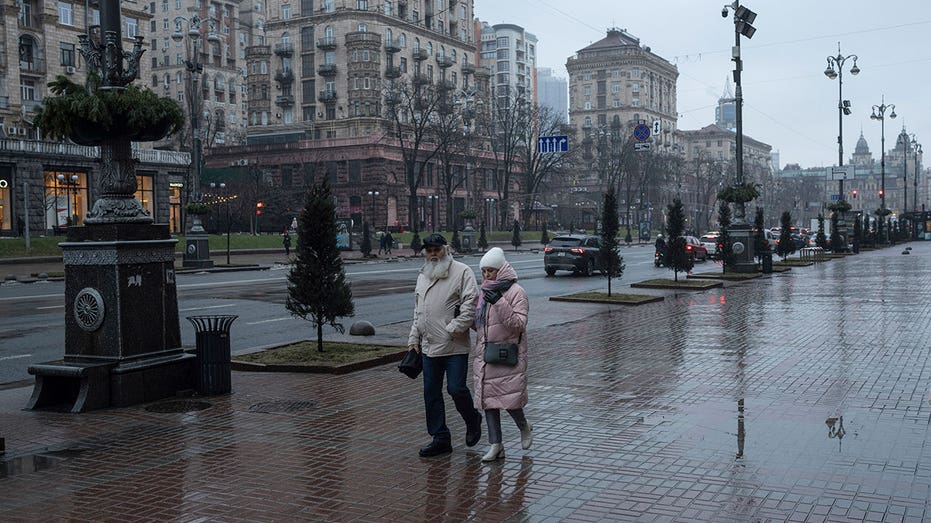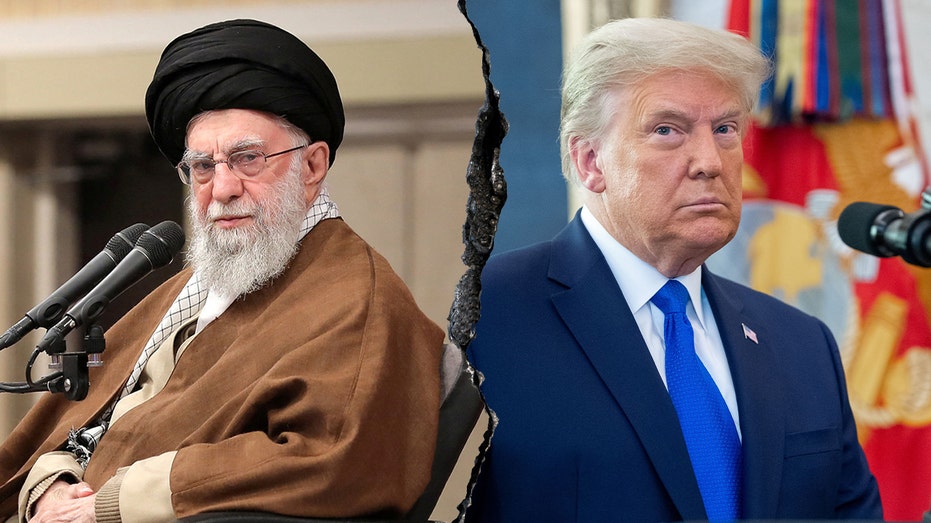Almost two years after Russia invaded Ukraine, the war has ground to a virtual stalemate. Ukraine desperately needs support to keep its economy afloat, but political infighting in the European Union and the United States are depriving it of the financial lifeline it needs.
As Hungarian Prime Minister Viktor Orban continues to oppose a $54 billion support package for Ukraine, other EU leaders are losing patience.
Ahead of a crucial meeting for the future of the war-torn country later this week in Brussels, here is a look at the stalemate.
EUROPEAN UNION LAWMAKERS AGREE TO PLANS MEANT TO PREVENT CORRUPTION FOLLOWING MAJOR SCANDAL
Concerned about democratic backsliding by Orban’s government, the EU has frozen Hungary’s access to tens of billions of euros in joint funds. Hungary, with its own economic concerns, has responded by vetoing EU political decisions, notably concerning Ukraine but also the Middle East. Hungary is one of the main net recipients of European Union funds, receiving far more than it pays in.
After Orban blocked the aid in December, the 27 EU heads of state and governments gather again on Thursday.
The other 26 want to unlock the money for Ukraine, but the Hungarian leader has been uncompromising, provoking growing ire among his counterparts.
“The difference with December is that many, many leaders feel irritation and want to play hardball,” a senior EU official said ahead of the summit. “The negotiation is getting a bit more complicated because the position of Hungary has not really been flexible.” The official asked not to be identified in accordance with EU practices.
Orban has repeatedly angered the EU since Russia started its war in Ukraine. He criticized EU sanctions on Russia as being largely ineffective and counter-productive. He advocated for an immediate end to the fighting and pushed for peace talks between Moscow and Kyiv, though he hasn’t detailed what such a step would entail for Ukraine’s territorial integrity.
Hungary has also accused Kyiv of mistreating an ethnic Hungarian minority in western Ukraine to justify its lukewarm support for its war-ravaged neighbor.
At their previous meeting at the end of last year, Orban did not prevent the EU from starting membership negotiations with Ukraine, but his decision to veto the aid has exasperated many.
“For many member states, it’s a question of survival, strategic interest that Ukraine is supported. Because it means war in Ukraine, not in Europe,” the official said.
The new financial aid, composed of grants and loans, is part of the EU’s budget plans until 2027. It is set to replace existing support provided to Ukraine from another program. For 2023, the EU granted Ukraine 18 billion euros ($19.5 billion) in macro-financial assistance.
U.S lawmakers have so far failed to approve an additional multi-billion-dollar package designed to help Ukraine buy weapons, placing the EU meeting this week under even greater scrutiny.
In total, EU support to Ukraine since the beginning of Russia’s war amounts to some €85 billion ($92 billion), according to EU figures. That includes more than €40 billion ($43 billion) to support Ukraine’s economy, around €27 billion ($29.2 billion) in military assistance measures, and over €17 billion ($18.4 billion) to help EU member states support Ukrainians fleeing the war.
Decisions on a review of the EU’s long-term budget, which contains the $54.1 billion in aid for the government in Kyiv, must be unanimous among all 27 member countries.
Hungarian officials have proposed that instead of approving the aid package in full, leaders should agree to split it in annual tranches and introduce a review mechanism. But that idea has not been well received because it would allow Orban to block the money at a later stage.
On Monday, Orban’s political director said that Hungary is open to using the EU budget for the proposed aid package, but on certain conditions.
“Budapest sent a new proposal to Brussels on Saturday, specifying it was now open to using the EU budget for the Ukraine package and even issuing common debt to finance it, if other caveats were added that gave Budapest the opportunity to change its mind at a later date,” Balazs Orban said on X, formerly known as Twitter.
Expecting the stalemate to last, EU officials have been working on possible alternatives, including committing to the delivery of aid from 26 countries only, on a voluntary basis, by decoupling it from the EU budget.
“Of course, we need to free up the 50 billion. If this is not possible at 27, we will try to find a solution at 26 with the same amount,” another EU senior official said.
EUROPEAN LEADERS ADVISE BOSNIA TO ACCELERATE REFORMS FOR EU MEMBERSHIP TALKS
But that option would require approval from national parliaments, creating more uncertainty.
If a deal can’t be reached, EU leaders will still have the possibility of extending by one year the 18 billion in aid provided in 2023 to Ukraine.
Orban is a master of political brinkmanship who has always known when to back down, but to many of his partners, his intentions now are unclear.
Over the past months, EU diplomats have hinted at the possibility of activating a mechanism that could ultimately lead to Hungary’s suspension from EU voting rights. Under article 7.2 of the Treaty on European Union, in the event of a “serious and persistent breach” of the bloc’s values, a procedure can be launched either by one-third of member states or by the European Commission, the bloc’s executive branch.
Meanwhile, the Commission can also continue to withhold some 20 billion euros ($21.7 billion) earmarked for Hungary from cohesion funds and post-pandemic aid in a bid to make Budapest cooperate.




